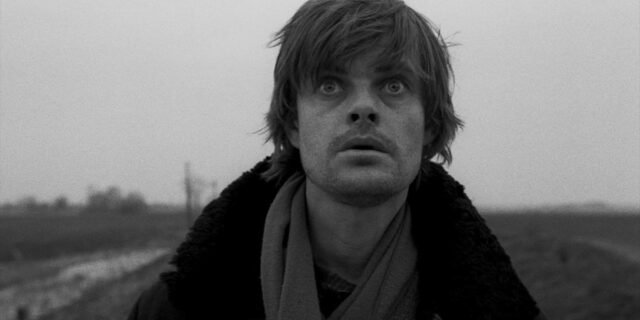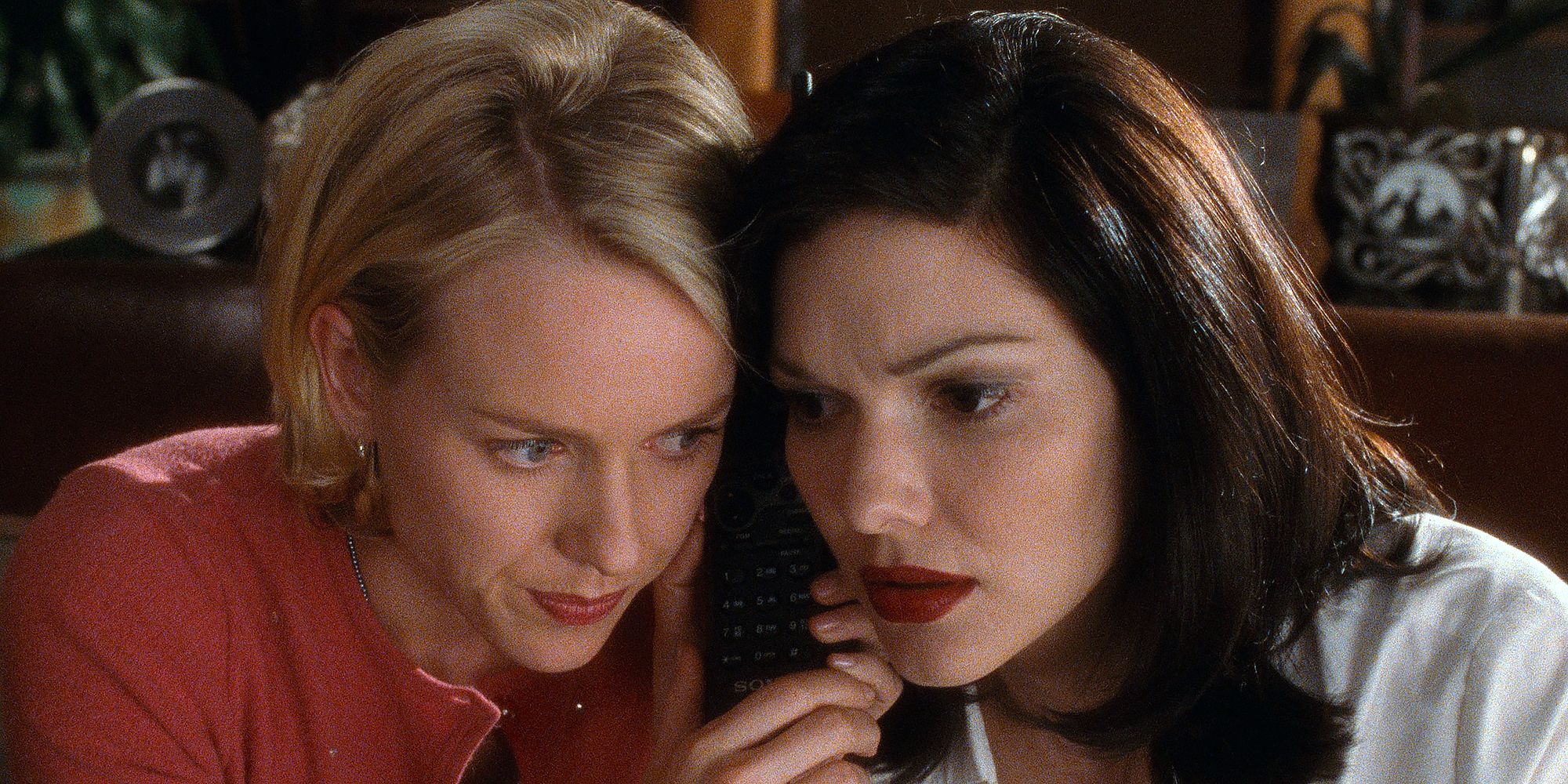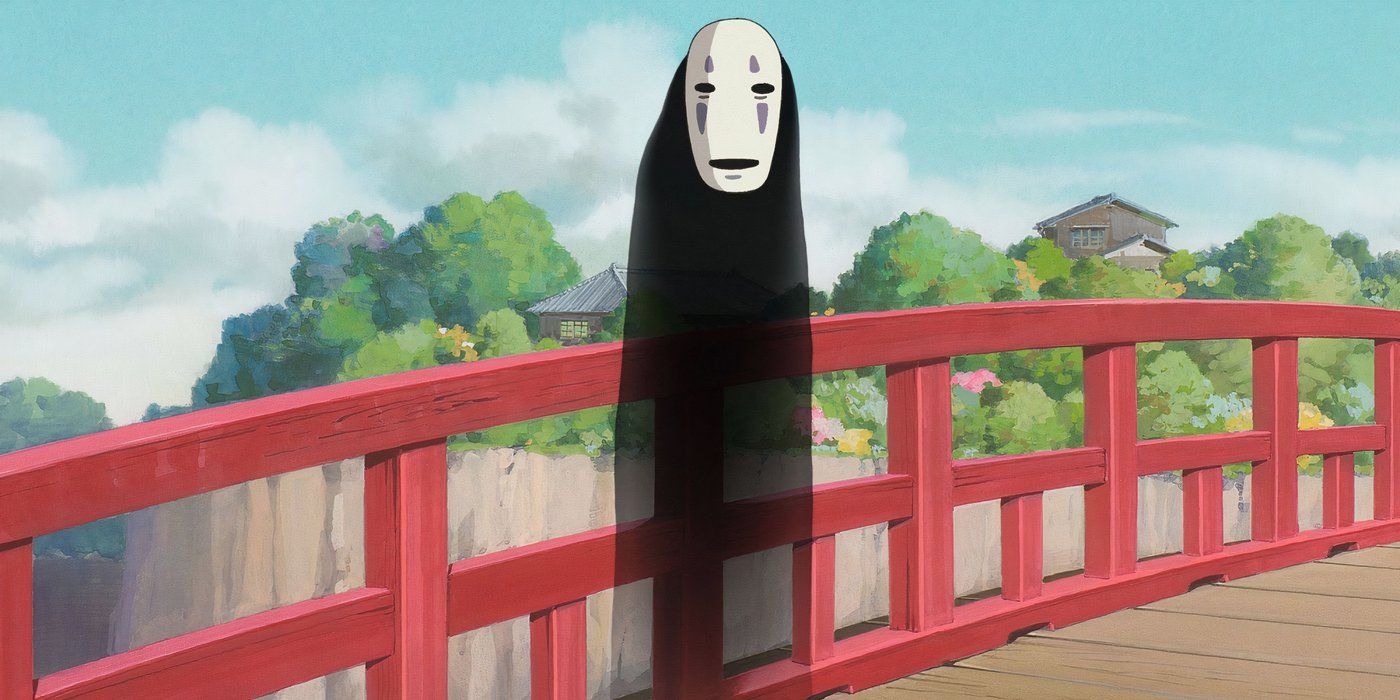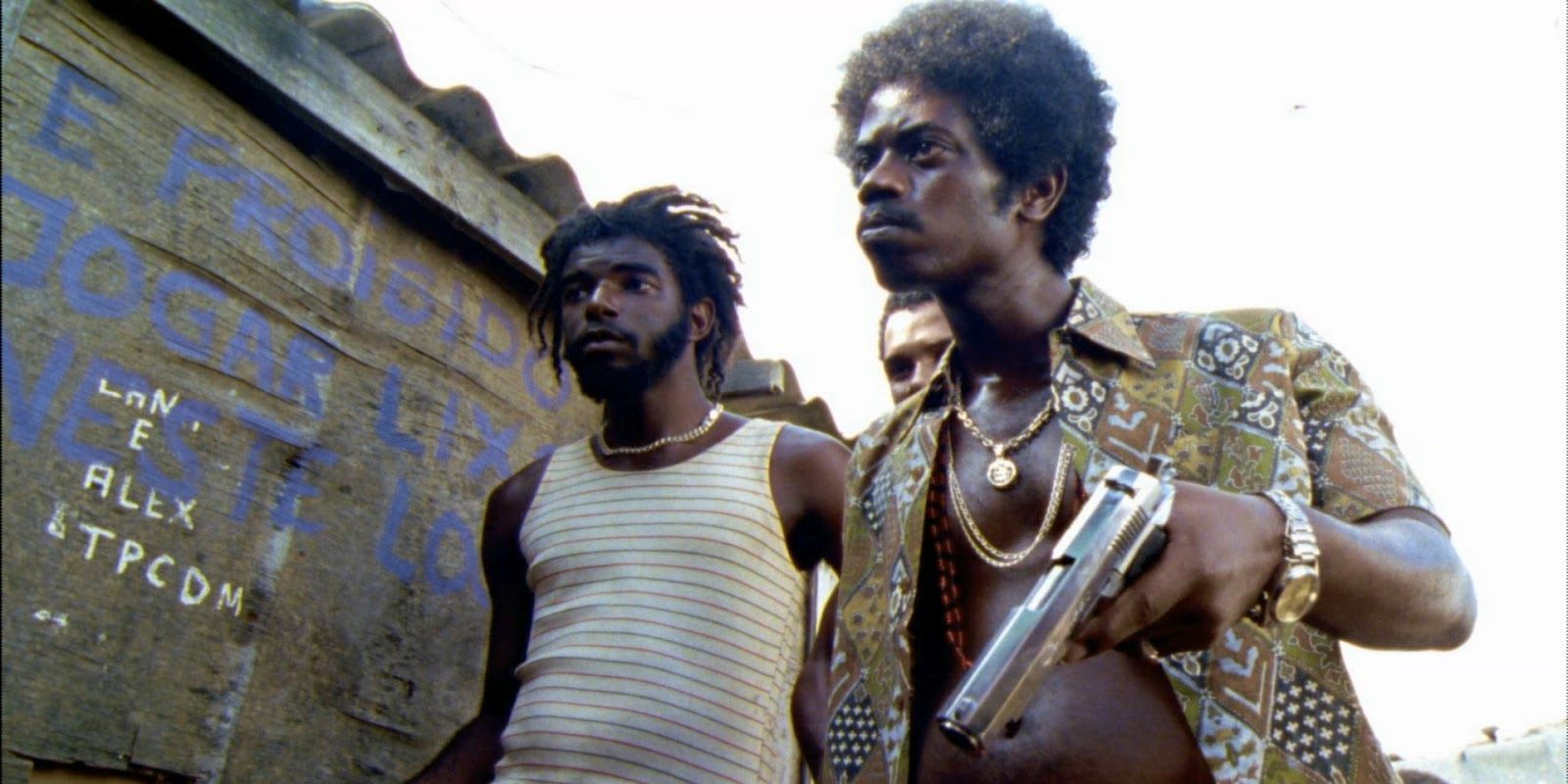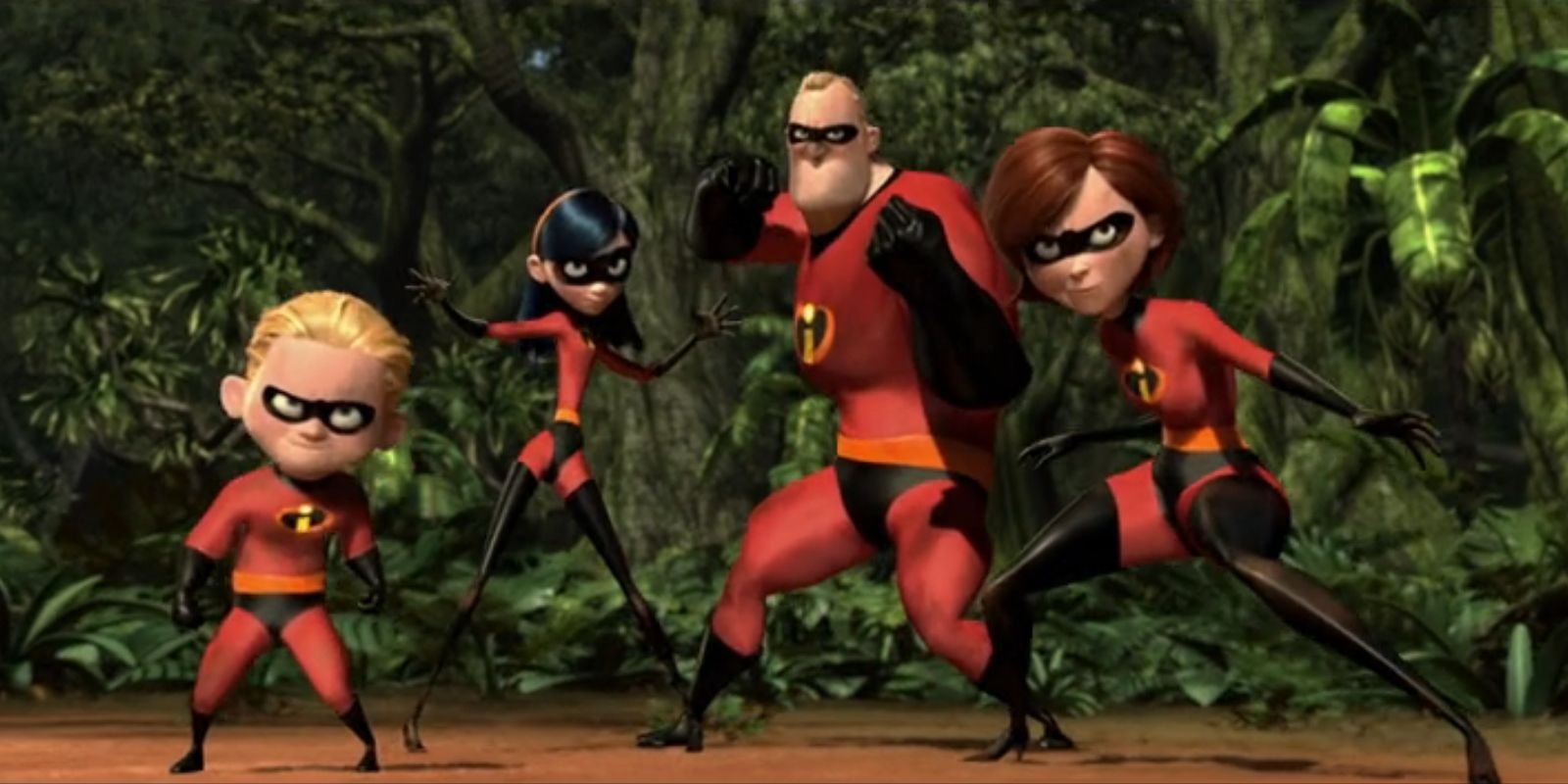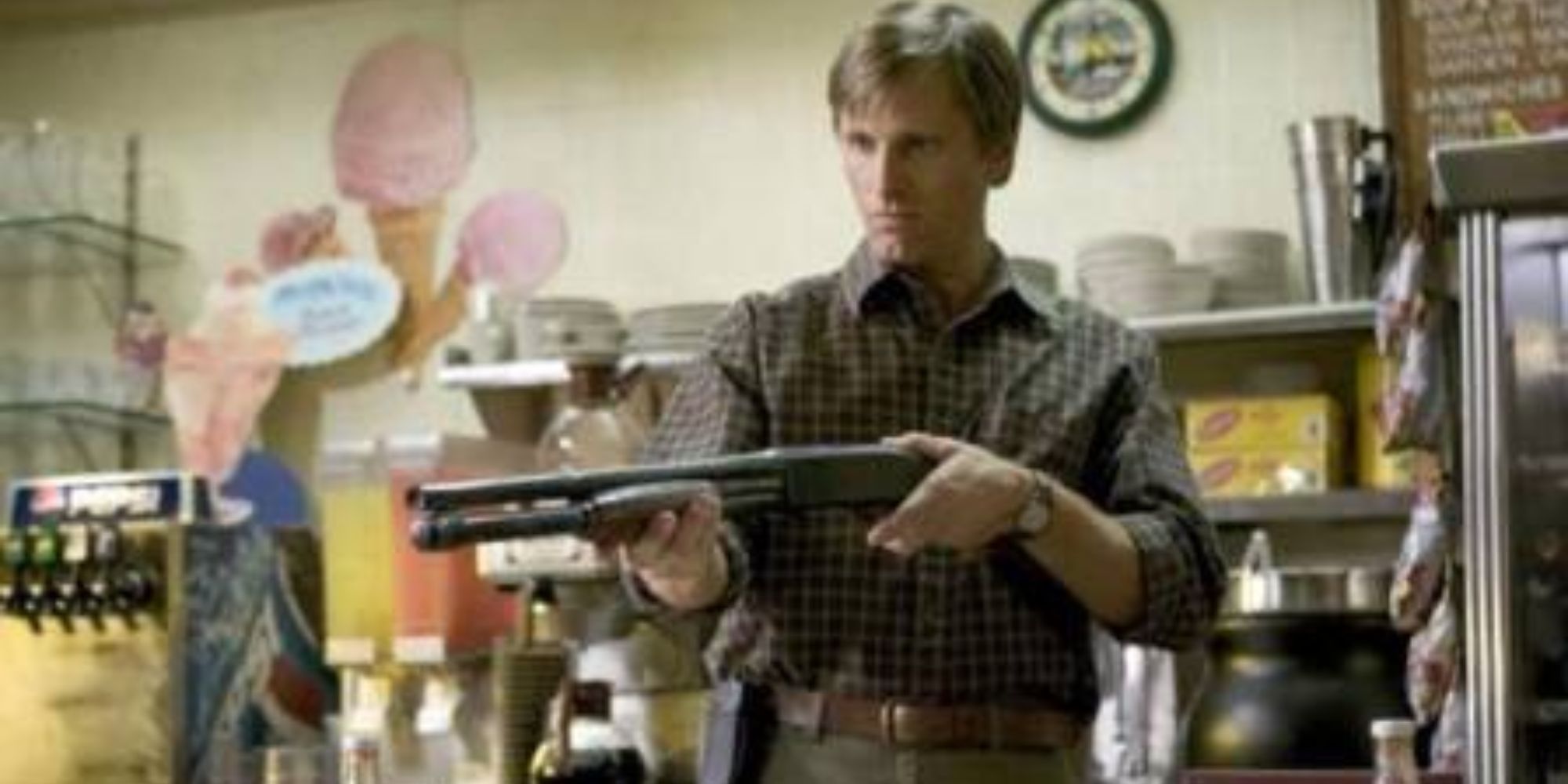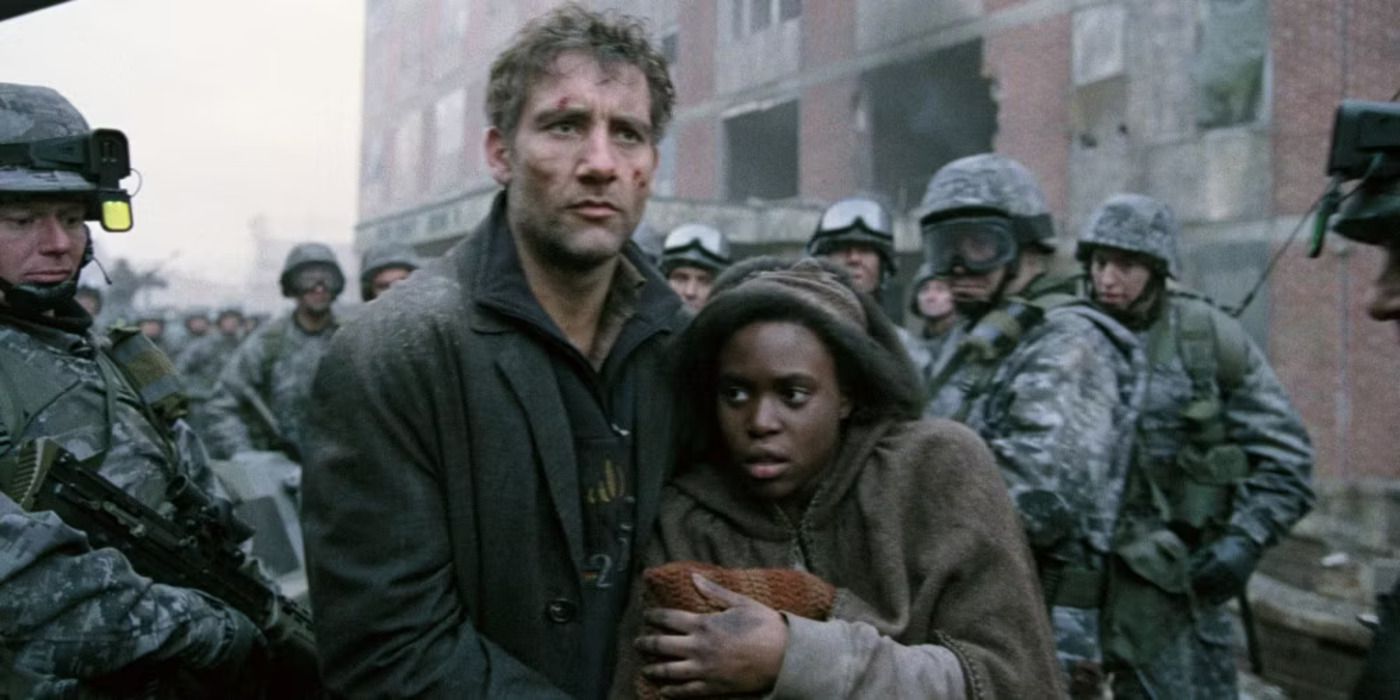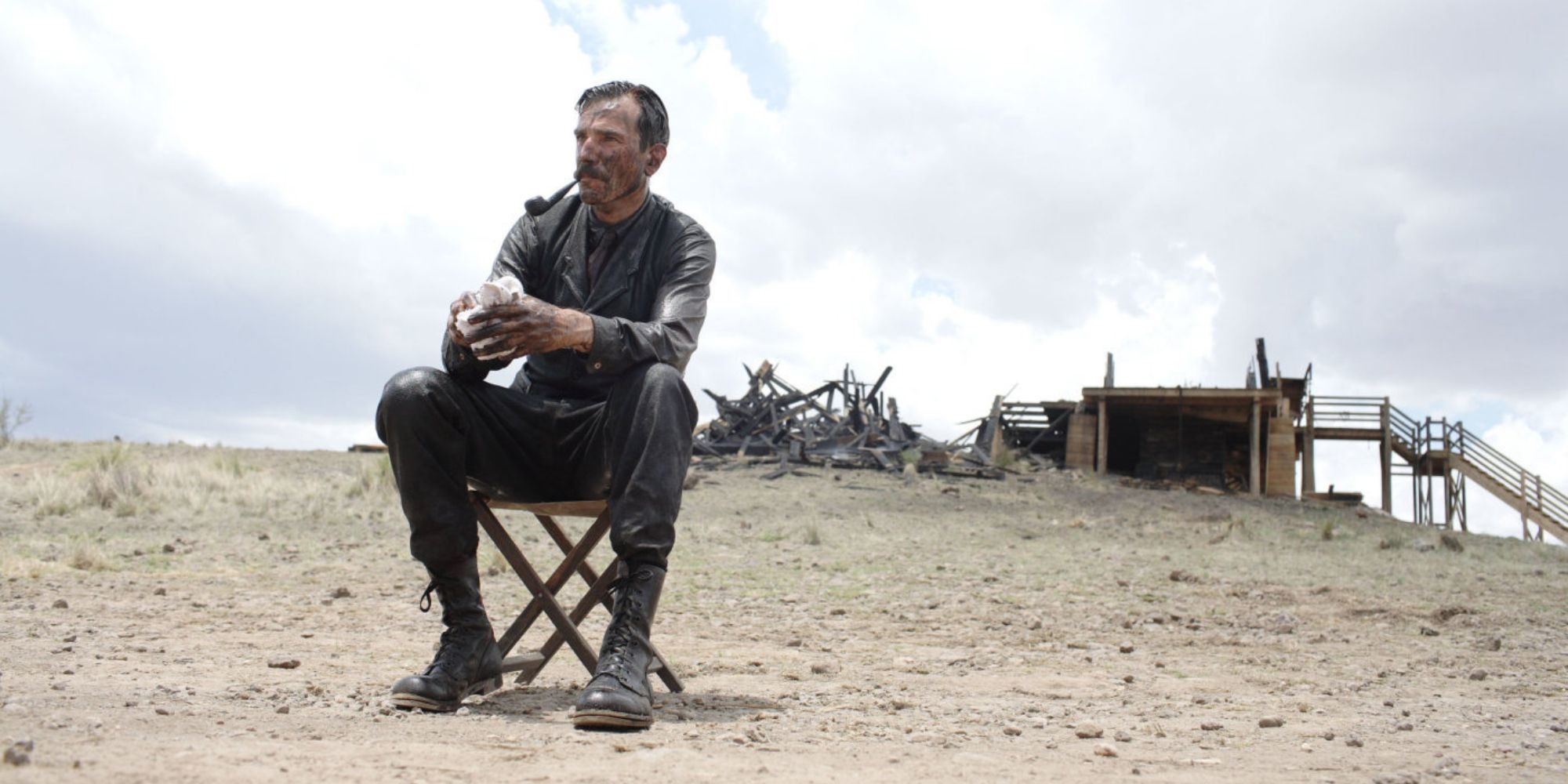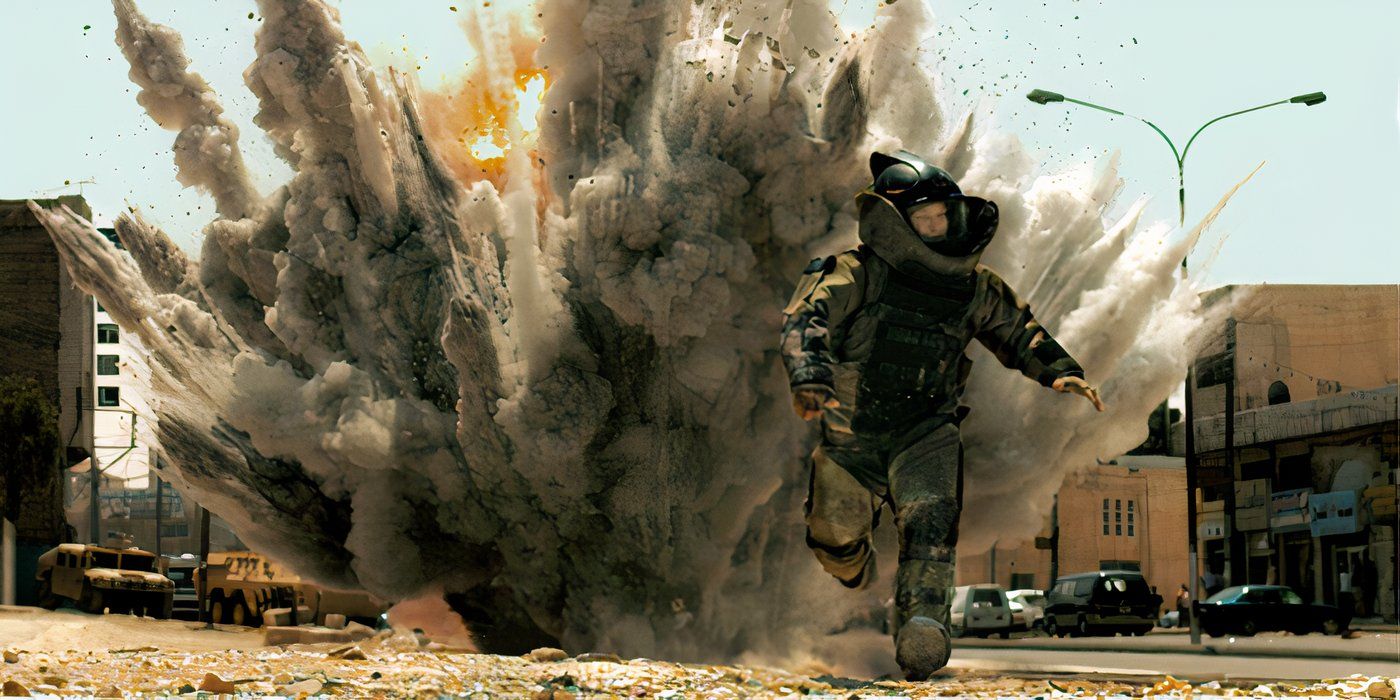Nostalgia is high for the 2000s as we’ve entered the 25th anniversary of the beginning of the decade. Many of those audience members who came of age during that time are staring down the barrel of middle age and have instead decided to turn around and look back instead. It was an era that brought with it many modern classics, underrated gems and what some might consider peak horror.
Every year in the 2000s had plenty of films that could lay claim as the best of not only their year, but even the entire decade. As much as there’s no objective best film for any given category, there are those that are undeniable masterpieces, and no conversation around the greatest for their respective years would be complete without them. These are the ten best movies from every year of the 2000s, many of which endure as all-time gems of the medium.
1
‘Werckmeister Harmonies’ (2000)
Directed by Béla Tarr and Agnes Hranitzky
If not the most well-known or successful film of the year 2000, Béla Tarr and co-director Agnes Hranitzky‘s Werckmeister Harmonies is certainly the most mesmerizing. Deliberately paced and comprised of a minimal number of long, slow shots (39 in total), the film chronicles the societal collapse of an unnamed town after the arrival of a bizarre “circus” that has only one attraction: a stuffed whale carcass that heralds the appearance of an unseen “Prince.”
Adapted from Laszlo Krasznahorka’s novel The Melancholy of Resistance, the film is replete with the hallmarks of Tarr’s career, from the visuals to his frequent collaborators behind the camera. It’s a film of stark imagery that demands attentive viewing and defies easy explanation even for those with a wealth of knowledge regarding Hungarian history and the lapping tides of fascism. Werckmeister Harmonies looks for order in chaos, and harmony between the two, but provides only apocalyptic possibilities.
2
‘Mulholland Drive’ (2001)
Directed by David Lynch
Originally conceived as the pilot for an unproduced television series, David Lynch‘s surreal masterpiece Mulholland Drive actually benefited from its disjointed production. Lynch devised an entirely new ending to his neo-noir Hollywood saga that is more or less centered on the relationship between two women: an aspiring actress played by Naomi Watts and an amnesiac played by Laura Harrington. Like much of Lynch’s work, the narrative is full of confounding twists and is not easily explained, and the mid-film shift where the two actresses suddenly inhabit new roles only raises more questions.
What makes Mulholland Drive such a must-watch mystery is the potent combination of its fever-dream narrative and perpetually unsettling atmosphere. It’s a poison pill antidote to rote Hollywood storytelling, refusing to hold the audience’s hand unless it’s only to lead them into uncertain danger. Lynch left an unmistakable mark on the world of film that will be nigh impossible to replace with the work of any other filmmaker, and Mulholland Drive may be the director’s best film ever.
3
‘Spirited Away’ (2002)
Directed by Hayao Miyazaki
Few directors who work within the animation medium loom as large as Hayao Miyazaki and his seminal work he put out through his Studio Ghibli. That includes one of the greatest animated films ever made: Spirited Away, which is being included here on a technicality based on its 2002 American release, because it’s simply too good to ignore. It’s a mystical, magical fantasy masterpiece that, despite a story that’s deeply rooted in Japanese folklore, has an emotionally resonant core that viewers of any nationality can relate to.
The film follows ten-year-old Chihiro as she becomes stuck in a magical town that exists within the spirit realm. She faces trials and tribulations in the style of numerous classic fantasy protagonists like Alice, who also experiences a transformation outside of childhood. It’s a coming-of-age by way of Japanese mysticism within a beautifully realized and animated world of spirits of both the good and evil varieties. With this film, Mayazaki raised the bar considerably and put major animation studios on notice that their pop-culture-reverent kiddie films were abject failures in the face of a true masterwork.
4
‘City of God’ (2003)
Directed by Fernando Meirelles and Katia Lund
There are few films as raw and upsetting while still functioning as kinetic entertainment as the Brazilian crime epic City of God. Set in the Cidade de Deus favelas of Rio de Janeiro during the rise of organized crime in the ’60s to the early ’80s, the film maintains a gritty authenticity thanks to its frenetic 16mm cinematography, fast-paced editing and the use of almost entirely non-professional actors.
The film’s narrative is framed through the lens of a young photographer, as he captures the rampant poverty and violence that erupts out of it in the slums he grew up in, while another young man rises to power as a violent druglord. Many films aspire to accurately depict the cycles of violence and how they are perpetuated, while also avoiding glamorizing the violent acts themselves. Few are as successful in that endeavor as City of God, which scorches itself in the memory after a single viewing.
5
‘The Incredibles’ (2004)
Directed by Brad Bird
While it took Hollywood three failed (official) attempts to figure out the formula for a winning Fantastic Four movie, Brad Bird nailed the idea of a superhero family in one try with The Incredibles. Coming into the Pixar fold after the commercial failure of The Iron Giant, Bird envisioned another retro-futuristic adventure set in a world where real superheroes have long since hung up their capes after the passing of federal legislation, attempting to lead lives as normal citizens.
Among those supers trying, and failing, to blend in are the Parr family, a quintet made up of super-strong dad Mr. Incredible, stretchy mom Elastigirl, and their children, the superfast Dash, literal invisible girl Violet and force of nature baby Jack Jack. Bird makes every superpower and extension of their characters, exploring family dynamics amid a slick, stylish James Bond-inspired adventure.
6
‘A History of Violence’ (2005)
Directed by David Cronenberg
2005 is often regarded as one of the best years for movies, thanks to the high number of unqualified classics that were released during. However, often overlooked among the essential films of 2005 is one of the best crime thrillers of the 21st century. A History of Violence was based on a graphic novel, which told a more conventional, if not suitably vicious, story of a seemingly normal small-town diner owner whose criminal past comes back to haunt him after he stops a robbery and becomes a local hero.
In the hands of David Cronenberg, A History of Violence is a look into the dark heart of America with a deep vein of gallows humor running through it. Viggo Mortensen is chillingly good in the lead role, simmering with tension that is waiting to boil over, while Maria Bello is every bit his equal as a wife who can’t fathom the monster she may have married. Rounding out the stellar cast are two terrifically sinister performances by Ed Harris and William Hurt (who was nominated for an Oscar) as a gangster out for revenge and the lead character’s big bad brother.
7
‘Children of Men’ (2006)
Directed by Alfonso Cuarón
A truly bleak view of a dystopic future, Alfonso Cuarón‘s sci-fi adaptation of the novel by P.D. James is most known for its virtuosic action sequences, which combine long camera takes with white-knuckle tension and explosive violence. Still, the story around those sequences is just as enthralling. Set in a future where women have become mysteriously infertile, Children of Men is an intelligent sci-fi thriller that provokes as much thought as it does adrenaline while taking a look at humanity’s ability to destroy when it can no longer procreate.
Clive Owen plays a former revolutionary hollowed into a husk of a man after a personal tragedy, who is pulled back into action when he is tasked with transporting a young pregnant woman to safety. The nail-biting action punctuates the film as it charts a journey through an England that has become a police state, where acts of revolution and terrorism are hard to discern from one another. What makes Children of Men such a harrowing watch is how depressingly plausible its future seems.
8
‘There Will Be Blood’ (2007)
Directed by Paul Thomas Anderson
2007 was another year with no shortage of classics, which makes choosing a singular film a futile effort based solely on personal taste and perhaps even mood. When a year contains some of the best work from filmmakers such as the Coen Brothers, David Fincher, Brad Bird and Edgar Wright, it’s silly to even consider what might be the definitive best. Still, the edge must go to Paul Thomas Anderson‘s almighty masterpiece, There Will Be Blood.
Inspired by the Upton Sinclair novel Oil! Anderson’s film was a major comeback for the filmmaker after several years away from the spotlight, following the more muted response to his misunderstood Punch Drunk Love. In this non-traditional Western, Daniel Day-Lewis plays oilman Daniel Plainview, whose thirst for black gold brings him great wealth but at the cost of his humanity and even family. Anchored by a towering performance by Day-Lewis, There Will Be Blood is an American classic that lays bare the bodies on which the country was built.
9
‘Man on Wire’ (2008)
Directed by James Marsh
While Slumdog Millionaire was the big, inspiring hit of 2008, it couldn’t match the inspiration of the true story behind the Oscar-winning documentary Man on Wire. Telling the story of French high-wire acrobat Philippe Petit and his successful 1974 walk on a tightrope strung between the Twin Towers, the film is structured like a heist caper, as Petit gathers a motley crew to help him pull off his acrobatic feat. It’s a charming film, with Petit a daring raconteur in his talking head segments, while the real footage of the walk is quite literally breathtaking.
Even Robert Zemeckis‘ big Hollywood version, which made audiences sick from its high-altitude sequences, can’t compare to the beauty and mystique of James Marsh‘s documentary. It’s wonderfully inspiring while also a bittersweet love letter to the towers themselves that were lost in a horrific attack. No human being has ever accomplished what Petit did, an act that simply cannot be recreated, which only adds to the magic of Man on Wire and its ability to make an audience feel like they’re walking on the clouds with him.
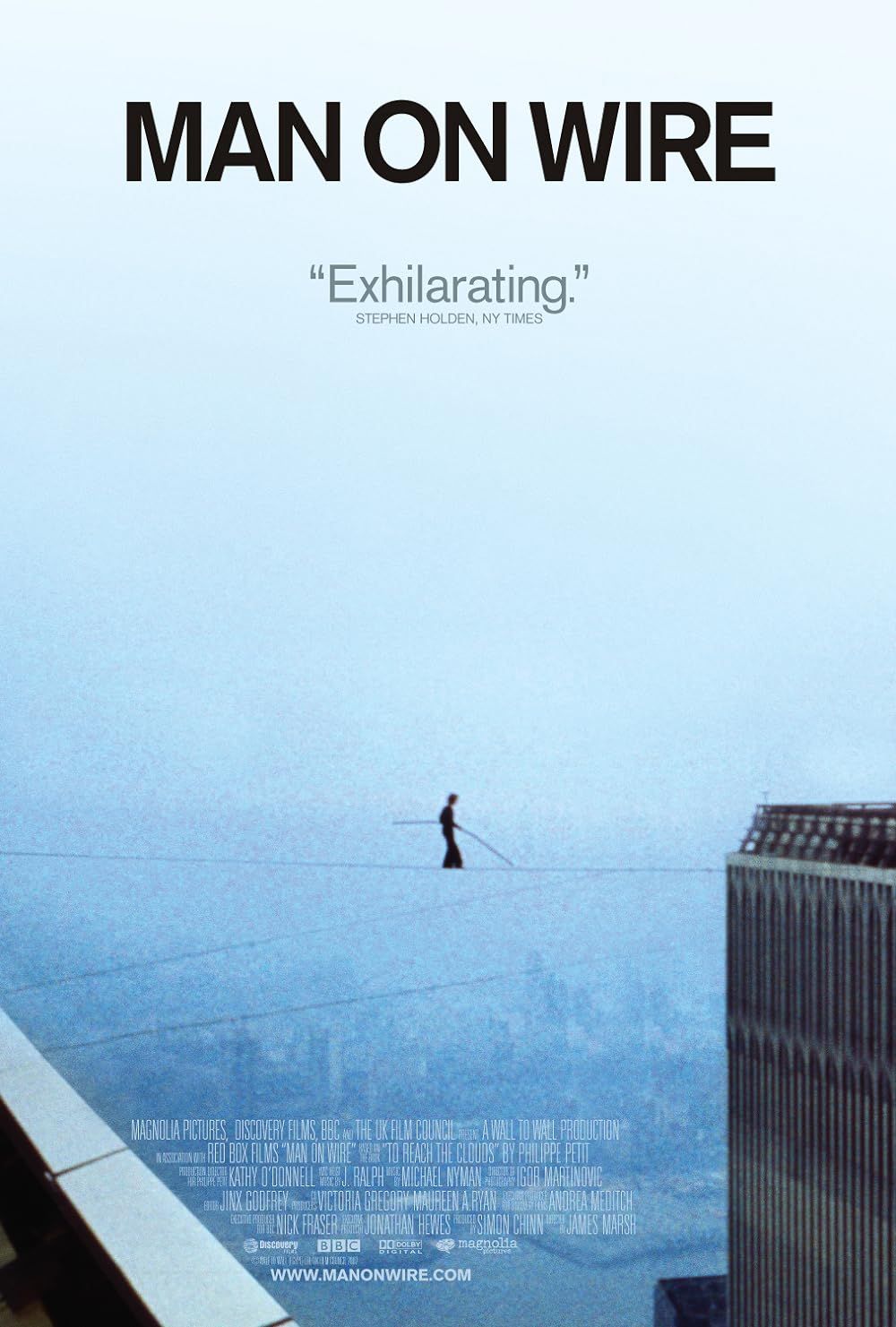
10
‘The Hurt Locker’ (2009)
Directed by Kathryn Bigelow
It may not be as rewatchable as some of the other films of 2009, but Kathryn Bigelow‘s Iraq War thriller The Hurt Locker is an unforgettable experience, less a factual documentation of the war or its soldiers than it is an examination of a male obsession with living on a razor’s edge. Jeremy Renner‘s bomb disposal expert shares the same DNA as Johnny Utah and Bodhi from Bigelow’s cult classic Point Break. He’s an adrenaline junkie who is only happy when he knows when he’ll get his next fix.
That adrenaline comes in the form of some of the most expertly executed suspense scenes, where the kind of explosive mayhem that fills the screen in every other Hollywood blockbuster is exactly what the characters are trying to avoid. It’s tense and gritty, made stars out of its cast, and won Bigelow a long-overdue Academy Award. The Hurt Locker was the perfect punctuation to a decade of great films.


